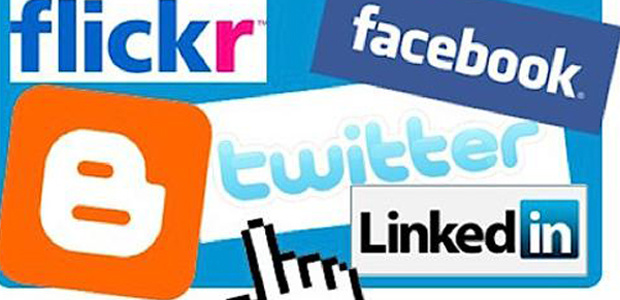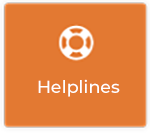What is Social Networking?
LinkedIn. Bebo. Twitter. MySpace. Facebook, of course. All what we now know as social networking websites. And all part of an explosive ever-changing online web culture which continually impacts on the way we all use the internet.
In 1995, in the basement of a house in the US state of Oregon, Randy Conrads, a Boeing employee, made history by launching the world’s first social networking website, Classmates.com. The site aimed to reconnect high school pals. But it’s done far more. It has revolutionised internet use and was the forerunner to what is now a multi-trillion dollar worldwide industry
Of course a ‘social network’ was, and is nothing new. It’s a group of connected people sharing information – whether it is a small village using a neighbourhood watch scheme or a large corporation putting together its latest annual report.
Conrads, though, had created something new: An instantaneous, online and very public forum where friends could share their lives and stay in touch with pals – all from their personal computer.
The Social Network Evolves
Since their mid 1990’s debut, social networking sites have evolved at dizzying speed. Now, almost 20 years after Classmates.com’s basic interface, users can keep up-to-date with friends through an array of instant chat platforms and video messaging.
Facebook, Mark Zuckerberg’s college project immortalised in the Hollywood film The Social Network, has become the world’s most used and recognisable. Of course, it’s also the world’s most valuable too. In Ireland it is the network of choice for the majority of children although Twitter and MSN are also popular.
The hundreds of millions of Facebook users sign up to activate a personal profile where they can develop contacts through searching for friends and can be part of various different groupings.
Groups include universities or schools where relevant educational resources can be shared. Sharing videos and articles is a huge aspect of the site’s success as is sharing pictures – and the most trivial detail of one’s life.
Whatever the rationale, though, for setting up a profile online, social networking websites are undoubtedly among the most popular internet sites for young people surfing the web.
But with such popularity, also comes great risks. Many people, not just teens, are sharing the most personal of data online in a very public manner. Privacy settings can be tightened, but social networking is essentially a form of publishing which bring many legal and social connotations.
In recent years, as the growth of social networking continued at pace with the development of Twitter, a site which allows people to ‘tweet’ short messages to thousands of ‘followers’ instantaneously, debates around racist, defamatory and provocative material have become common. Indeed, there have been many cases of youths – and adults – being jailed or fined for posting obscene material on social networking sites.
What are the Risks of Using Social Networking Websites?
Like most online activity, there are risks to the users. Youngsters can come into contact with people who they shouldn’t and sadly there are people who will try to take advantage of children online.
Like most online activity, there are risks to the users
On social networking websites, bullying and harassment appear to be among the most prevalent problems and include the posting of nasty, mean or threatening messages on user profiles, as well as the setting up of fake profiles to poke fun at someone. It’s worth pointing out also that young people may not only fall victim to these harmful behaviours but they may also be involved in initiating or perpetrating the same against other children.
The big difference between writing nasty messages on the back of a school book and posting it on the internet is that the messages can be seen by a very wide audience almost instantly. Kids also feel they can hide behind anonymity online.
Unscrupulous predators tend to target social networking sites as the basis for scams, malicious attacks, or, in the worst case, paedophiles try to groom potential victims online by opening up lines of communication with teens.
Harmful and inappropriate content, like videos and pictures relating to sex, violence, discrimination, drug addiction, and cult worship are all issues which also worry parents.
Why are social networking sites so popular with young people?
Young people are natural born multi-taskers. Surfing social networking sites while doing homework at the same time as downloading music and chatting to a friend through instant messenger is a breeze to most teens.
Social networking websites allow young people to experiment with who they are. They are popular because teens can find their own, uninhibited voice online which they can share with friends. Some teens feel they can express themselves easier online when compared to the real world because perhaps they feel the virtual world is more secure.
There are also other perks. Keeping up to date with social events, posting and sharing pictures, music and articles, as well as staying in touch with friends and making new ones are all part of what makes social networking so popular today.
The Future
Despite the risks, social networking has limitless educational potential. It can connect teens with vital resources and people who they can learn from. The sharing of information is the learning about other cultures. It is the way to think critically about ideologies, religious beliefs and politics. And it is the way to open up a mind to the world outside.
Few doubt the emergence of handheld computers like tablets, and the growth in mobile devices, will be the next platform for social networking websites. But what shape social networking will take next, is unclear.
Perhaps there is a Zukerberg or even a Conrads surrounded by stale cups of coffee in a hot and sweaty basement in some quiet backwater village in an unassuming US state working feverishly on some school project which will become the next Twitter or Facebook.
Even if there isn’t, one thing is certain though. New online social networks will be fast, mobile, revolutionary and will bring a whole new set of opportunities, and, of course, risks to an already globalised and local world.









